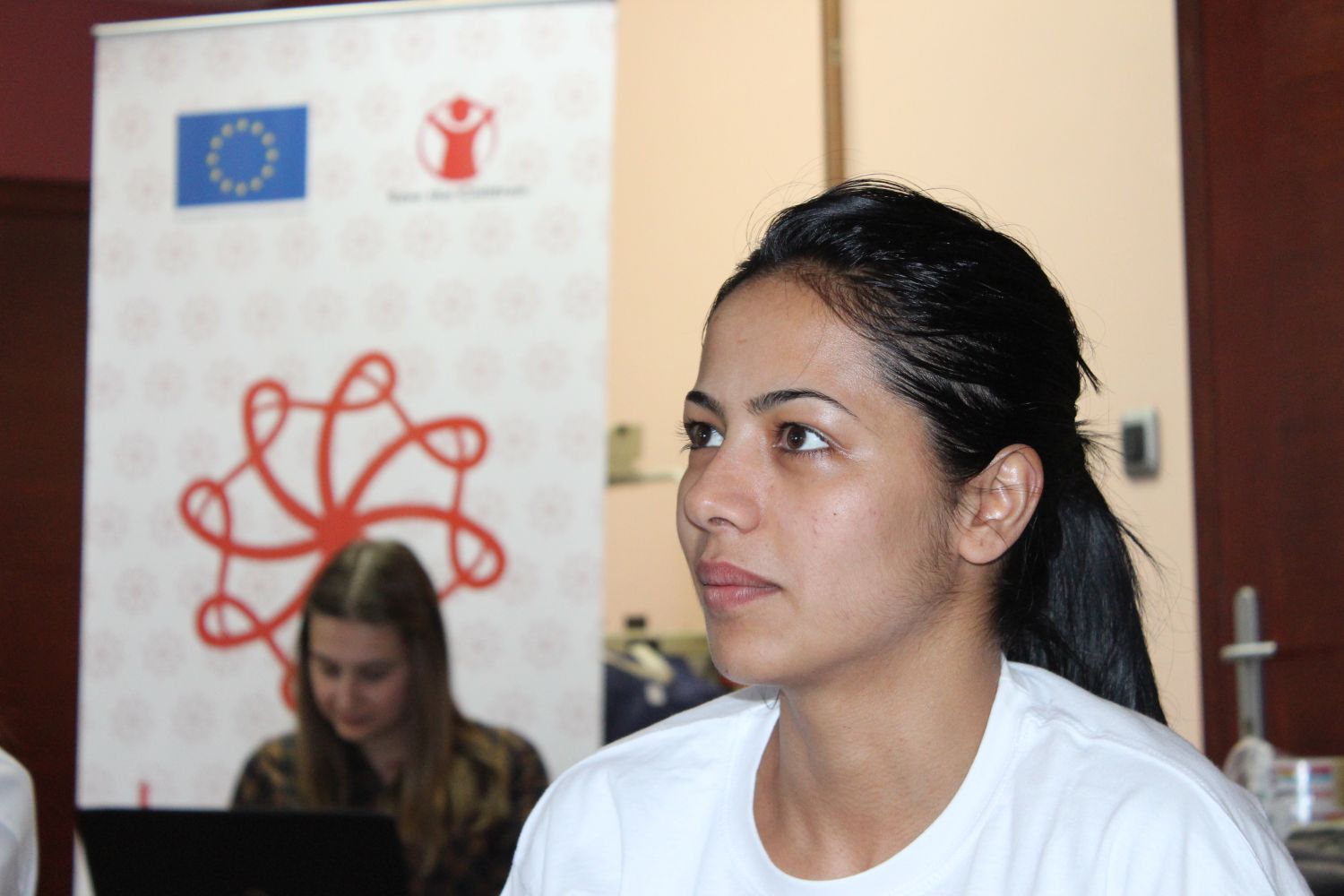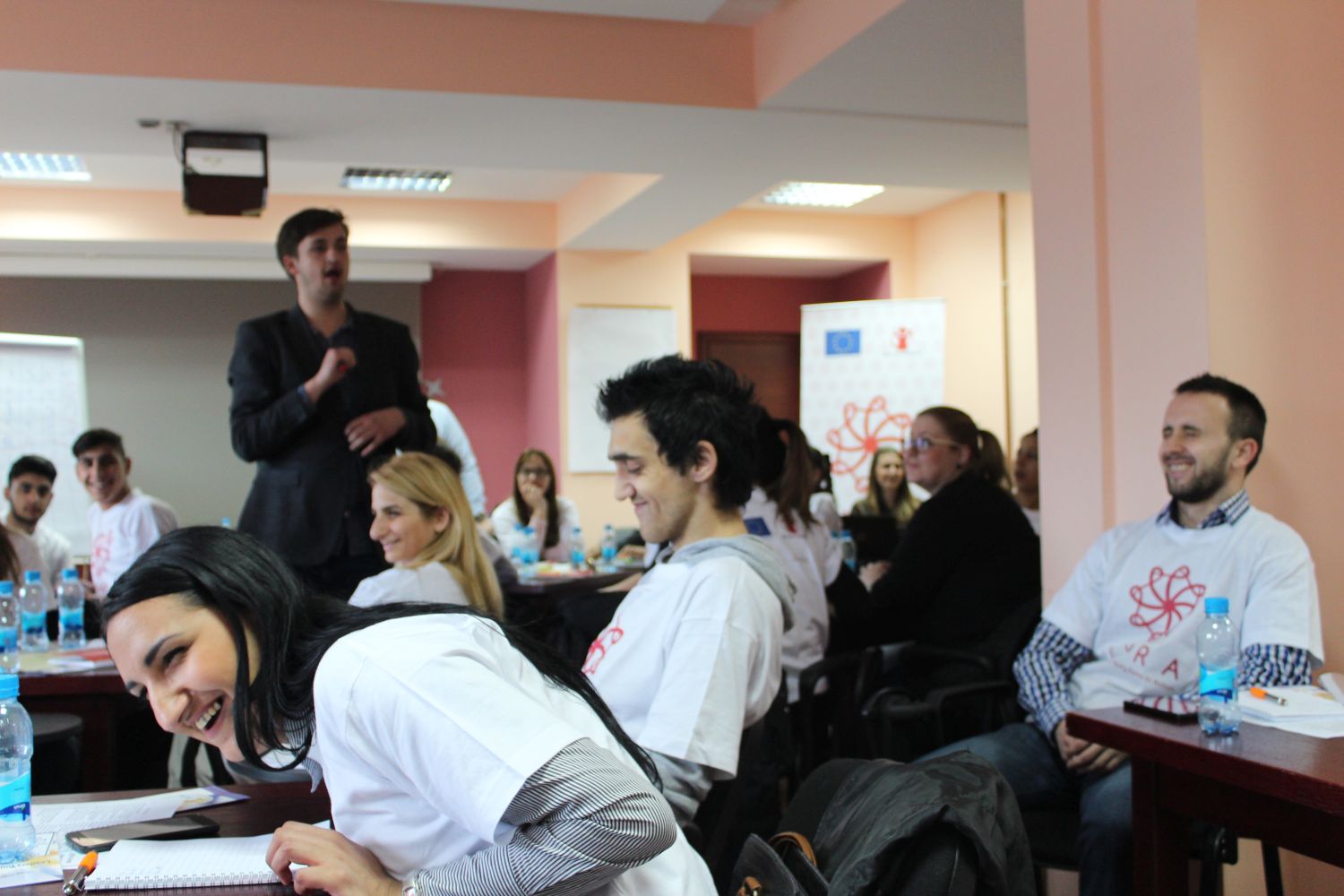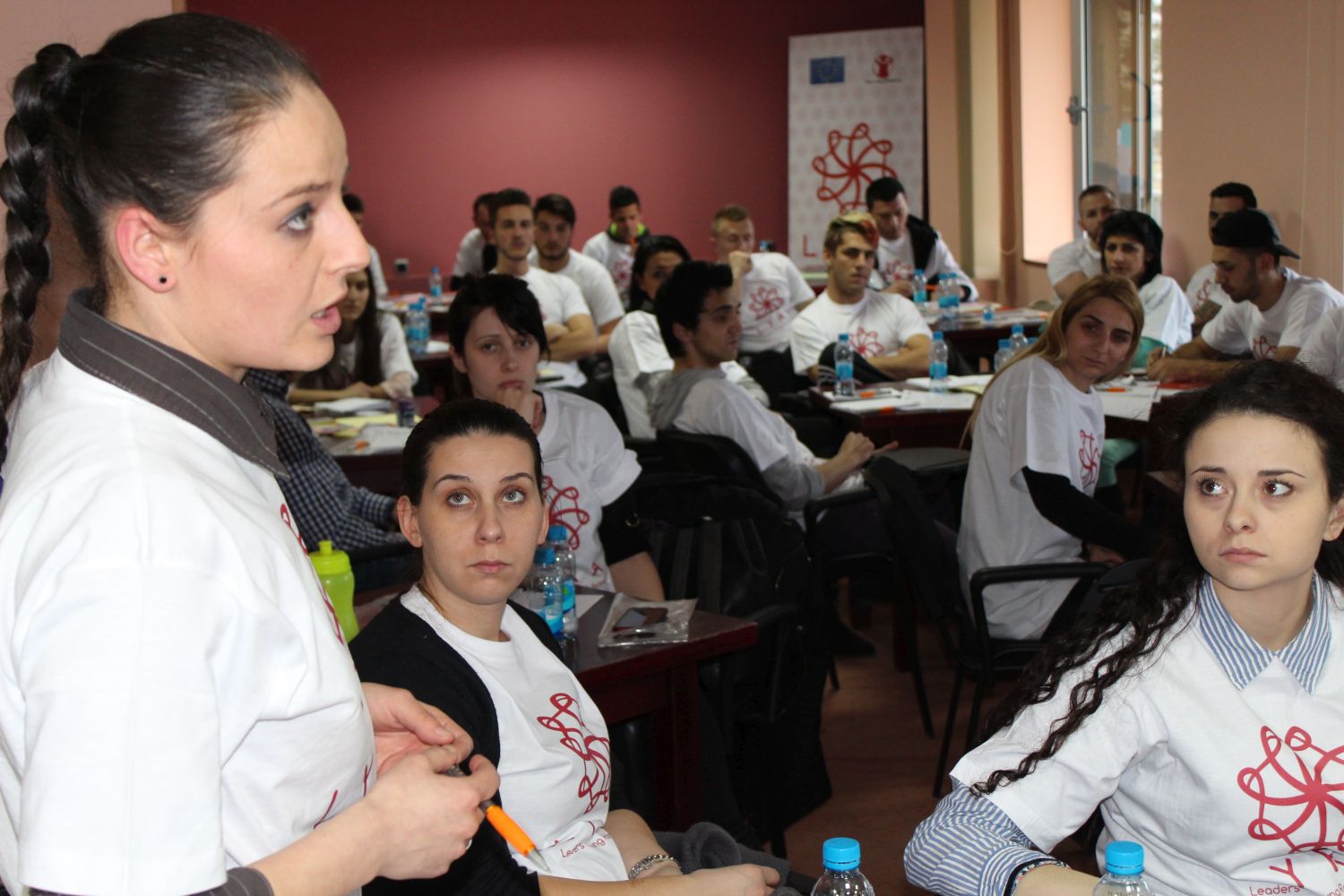 North West Balkans
North West Balkans
Languages
Roma growing up: In worse position since birth and discrimination shadowing them

It seems that problems of Roma population in Bosnia and Herzegovina are spinning in a vicious circle: on one hand there are projects, programmes and incentives, while on the other hand things hardly move forward in the field. Without deep reaching changes in the treatment of minorities in many segments of the society, the road towards progress will still be filled with many visible and invisible obstacles.
Poverty and unemployment are the biggest problems Roma people face in BiH, and that is reflecting on the upbringing and education of children, which consequently leads to continuation of the cycle of poverty and exclusion.
Already from young age, Roma children are on the margins. Many of them are legally invisible, have never been registered in the birth records, thus being deprived of social welfare and healthcare. Roma children are rarely provided with kindergarten services (e.g. in Brcko, where Roma are the biggest ethnic minority with over 2,500 people, not a single Roma child is in a preschool institution). When the time comes for enrolment in school, children undergo assessment in Bosnian, Serbian or Croatian language. A child that grew up in a Romani speaking Roma family, which did not attend preschool, will probably demonstrate poor results due to lack of language understanding. It is already in a worse position to begin with.
Transportation to school, textbooks, lunch, sports, afterschool activities... While for many children this type of logistics comes without asking, for Roma families these are all hard areas to conquer. As the school goes on, the gap between majority children and kids from marginalised and excluded groups grows bigger and bigger. Discrimination, exclusion, invisible fences... Number of those who persist dwindles, and by the end of elementary school the number of Roma pupils will have decreased significantly. For example, in Tuzla, which according to some estimates has a Roma community of 5,000 people, less than 2% of them have permanent employment and only 15% of Roma children complete elementary schools.
It is especially tough for the girls
At this age, it is especially tough for Roma girls whose parents do not send them to school due to marriage option or work in the streets. Entering into the adult world, young Roma people are introduced into the existing family patterns, supporting themselves by working in the gray economy, collecting secondary raw materials or working on the streets.
Lack of social care and absence of comprehensive and long-term strategy maintain the status quo. Is there a way out?
“It was very hard at the beginning, I volunteered since I was 16 in the Association, and today I am employed as a Roma mediator”, said Begzada Jovanovic from the civil society organisation for promotion and education of Roma Otaharin in Bijeljina. Her day-to-day job is to assist Roma families with administration, schooling of children. Begzada is also an assistant to teachers in elementary school, helping the youngest Roma children to master the materials. She is aware of the prejudice that they have to fight, and says that she herself suffered discrimination from her peers during her education: “My mother died when I was in elementary school. I remember that I had long hair and I had no one to comb my hair and children always called me fuzzy. Life circumstances forced me to stop my school, I have lived in Germany for a year and a half, but in the end I managed to complete economic school education and I plan to go to university” said this girl, who is one of 40 young Roma leaders gathered under LYRA network.
New generation of young Roma leaders
Since 2013, a new generation of young Roma who do not want to accept the deep-rooted situation and prejudice, has linked into the network which calls itself: Leaders - Young Roma in Action. Save the Children, supported by the European Union, just facilitate second cycle of trainings for them to be able to work for the well being of their Roma communities.

Five-day training took place in Brcko, and aside to Roma representatives from Brcko, there were young people from Mostar, Sarajevo, Tuzla, Bijeljina and Banja Luka. Concrete goal of this training was to empower and enable young people to identify discrimination and violation of human rights, to report it and gather evidence through research, and to connect with institutions that handle protection of human rights, primarily the Ombudsmen and BiH Ministry of Human Rights.
“They willingly came to the training, which is an important thing. These are young people who directly feel the injustice on their own skin, but they are also aware of what they could accomplish, they are real fighters for human rights who do this truthfully. I hope that in their communities they will find support and I believe that they can make a real change. We say here that changes come from the individuals and that, primarily, the individuals are responsible for themselves, and then they are responsible to do something for others. Changing themselves they, indeed, change the society”, explained Nedim Krajisnik, trainer for human rights at LYRA network training.
A proud Roma girl
Just like our interlocutor Begzada, other attendees of LYRA 1 and 2 trainings have clear goals. One of them is Denis Mujic from Tuzla, mechanical technician who would like to work on the computer programming in future. At the moment, he is active as a Roma leader in his community and assists the young people. Haris Halilovic from Mostar grew up without parents in an orphanage, and given that he recently became of age, he is marking a huge milestone in his life. Roma activism for him is a way to empower himself, and then the others. Gazmend Januzi from Sarajevo is employed as member of the Sarajevo Canton Centre for Social Work mobile team and his day-today job is to help children and young people who are forced to beg in the streets.
A sophomore student at the Faculty of Philosophy in Banja Luka Mersiha Manjic plans to be a class teacher. She has good relationship with her colleagues and she does not allow discrimination anymore, but she has years of struggle behind her. She is aware that her Roma origin could be seen as a problem by some parents of her future pupils, and Mersiha, who calls herself a proud Roma girl, already prepared the answer:
“I can, I will and I am capable of doing everything”, said Mersiha.
Dalibor Tanic, freelance journalist and second trainer at the training emphasised that it is very important to teach young Roma to identify discrimination in society and to find their own way to fight against it. Given that he himself is member of Roma minority, based on his own experience he shared: “I have substantial problem with majority groups, even with those that handle issues of minorities, when they say – I know what you need and what is your problem. It happens that minority groups cannot identify discrimination because it is, as such, an abstract idea. You cannot expect one minority group that does not enjoy so many benefits, like education and opportunities to talk and discuss, to be able to identify forms of discrimination”, said Tanic, noting that it was important for this training to focus on identifying discrimination.

"It is especially important for us that we will, through LYRA 2 project, establish cooperation with two key institutions for protection of human rights and fight against discrimination in BiH –Ombudsman institution for human rights protection and Ministry of human rights and refugees. It is significant that through this process we will set up communication channels for young people at the local level, through this process of training, to be able to communicate with institutions that are primarily in charge of protecting the human rights, and that we will contribute to improvement of human rights situation in BiH through training the young people about it“, concluded Ahmed Pjano, Save the Children Programme Director.
Educated, proud and determined in fight against discrimination, new generation of Roma leaders has successfully completed the second cycle of training under the LYRA network. The task they now have in front of them is to share the knowledge they just acquired with members of their community, in a responsible and committed manner, and apply it in their communities.
Radiosarajevo.ba
20 March 2016